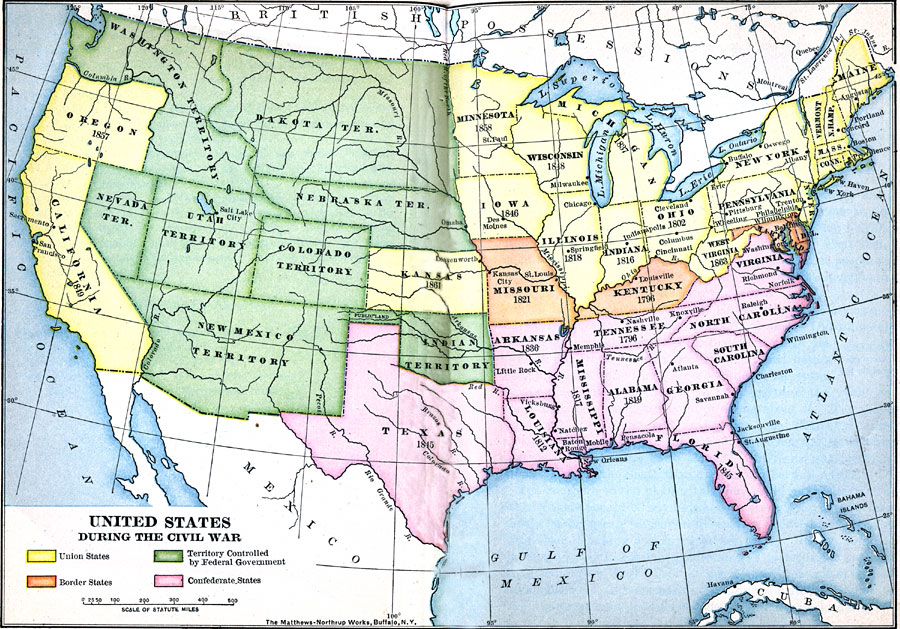Slavery existed in the United States long before the states themselves came into being. British, French, and Portuguese traders brought African captives over to the New World, and the captives brought their music with them, according to both John Lovell and Dena Epstein.
The Civil War broke out after a period of increasing political instability caused by not only disagreements on the moral and legal justification for slavery, but also concerns over the extent of federal versus state power. War was declared in 1861, when several southern states officially withdrew (seceded) from the Union. Allied together as the Confederate States of America, these secessionists or Confederates then attacked the federal Fort Sumter in South Carolina. Eventually, the splintered country looked something like this:
In 1865, the Confederate states (represented by General Robert E. Lee) surrendered to the Union (represented by General Ulysses S. Grant). All slaves in the country had already been legally freed by the Emancipation Proclamation, issued by President Abraham Lincoln in 1863.

The Emancipation Proclamation, 1863
Neither of those things meant that the enmity which had led to the war had disappeared: not long after the surrender, President Lincoln was assassinated in his box at the Ford Theater by an actor, John Wilkes Booth. His successor, the former general U. S. Grant, made a number of reforms in the South called “Reconstruction,” most of which were overturned by his successor, Andrew Johnson.
And so, in the quick history of the Civil War and the situation of slavery in the United States, anyone not “white” in the post-Reconstruction South still occupied a second-class status. Not until the Civil Rights movement took off in the 1960’s did even the right to vote become a reality for many African-Americans. The prejudices which led not only to the Civil War but also to segregation, Jim Crow laws, and poll taxes continue to pose challenges today, over a hundred years after the end of the Civil War and the official prohibition of slavery.


You must be logged in to post a comment.